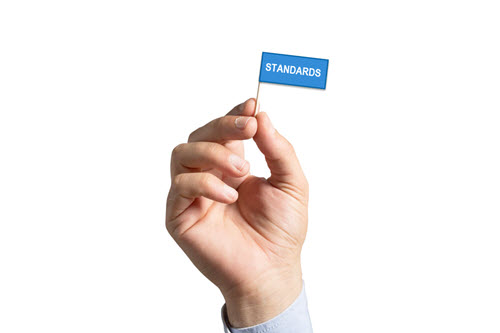News You Can’t Use
SSFS 1 Announced at AICPA FVS Conference
The AICPA just announced the upcoming Statement on Standards for Forensic Services (SSFS 1) engagements. In this article, C. Zachary Meyers offers readers a sneak peek into the three key areas of interest.
[su_pullquote align=”right”]Resources:
Business Valuation/Appraisal Standards Comparison Chart
[/su_pullquote]
So, the word on the preverbal block is that the AICPA just announced the upcoming Statement on Standards for Forensic Services (SSFS 1) engagements. The sneak peek offered a glimpse into the three key areas of interest:
- No contingent fees
- No expert opinion on the ultimate legal issue
- No agreed upon procedures as one party’s testifying expert
Contingent Fees
The SSFS 1 will apparently clarify the disallowed practice of contingent fees earned as a testifying expert. Personally, I did not know this was still an issue given the whole Independence, Integrity, and Objectivity, aspect of the Professional Code of Conduct.
Ultimate Legal Issue
The SSFS 1 does appear to have a taste of new rules for your codified palette. Namely the new concept of forbidding an expert from rendering an opinion regarding the ultimate legal issue in dispute. While this seems simple enough, it should be interesting how this set of standards will define “ultimate legal issue in dispute”. When applied to fraud cases, a simplistic definition of “the ultimate issue” would be easy to apply as the expert or forensic professional should be testifying about the factual results of their forensic review findings and not opining as to whether a fraud occurred. The question becomes what to do in instances where the calculation the expert provides is determinative of the ultimate legal issue. Moreover, how could this definition be applied to lost profits and business interruption engagements where the expert must quantify the issue in dispute often via a measure of causation. In business interruption it is not uncommon that both parties agree a damage event did in fact happen and the ultimate issue is to what extent did it cause a business interruption. Would it be applicable to an expert’s recasting oil and gas royalty calculations where the ultimate issue of deciding if a breach of contract occurred rests upon your calculation of royalties paid under a lease? Even fraud cases can use an analyst to recast what the adjusted gross income would be if a properly prepared tax return had been prepared, as the federal sentencing guidelines set the prison sentence based upon how underreported the income was. At that point, the guilt or innocence is no longer the ultimate issue as the ultimate issue is the amount of understated income or the object of the offense.
No Agreed Upon Procedures (AUP)
The final curveball is intriguing, whereby the SSFS 1 will also have a rule forbidding “agreed upon procedures” when the analyst is retained as one party’s testifying expert. What in the world is that supposed to mean? If you are like me, you have not done an agreed upon procedures engagement since back in your auditing days. This rule could mean any number of things, but one could speculate that this could be about the highly debated issue of using calculation engagements in litigation; namely divorce. While you may have missed the “2020–21 USPAP Second Exposure Draft”, which solicited comments for a little over 30 days (August 23 to October 10) a month ago, there was some proposed guidance that seemed to recommend going from a “two sizes fits all” set of reports to estimate value, down to just one. Perhaps I am wrong. Perhaps the AICPA got a memo I did not get or was not privy to.
What Now
What does this all mean? Only time will tell, but the overall picture seems to suggest more of the same. Rulemaking is hard, so while many may scoff at the estimated four- to five-page SSFS 1 slated to come out in early 2019, I give the AICPA an E for effort FS (for sure). But I would toss out this gem of wisdom on rule making. Making rules does little to accomplish an objective absent a mechanism for compliance or timely guidance being offered to supplement said rules. A sign that says “no running in the halls” does little if you do not advise the hall monitor of the difference between running, walking, or even skipping.
C. Zachary Meyers was elected to the NACVA Standards Board in 2016, appointed vice-chair in 2017, and chair in 2018. He has been retained in over 1,600 engagements as a testifying expert, consulting expert, or joint/court appointed expert since 2011. Mr. Meyers has provided expert testimony and been qualified in Federal District Courts, State/Circuit Courts, and Family Law Courts as an expert in business valuation, forensic accounting, pension valuation, and taxation.
Mr. Meyers can be contacted at: (304) 690-2619 or by e-mail to: czmeyers@icloud.com.










